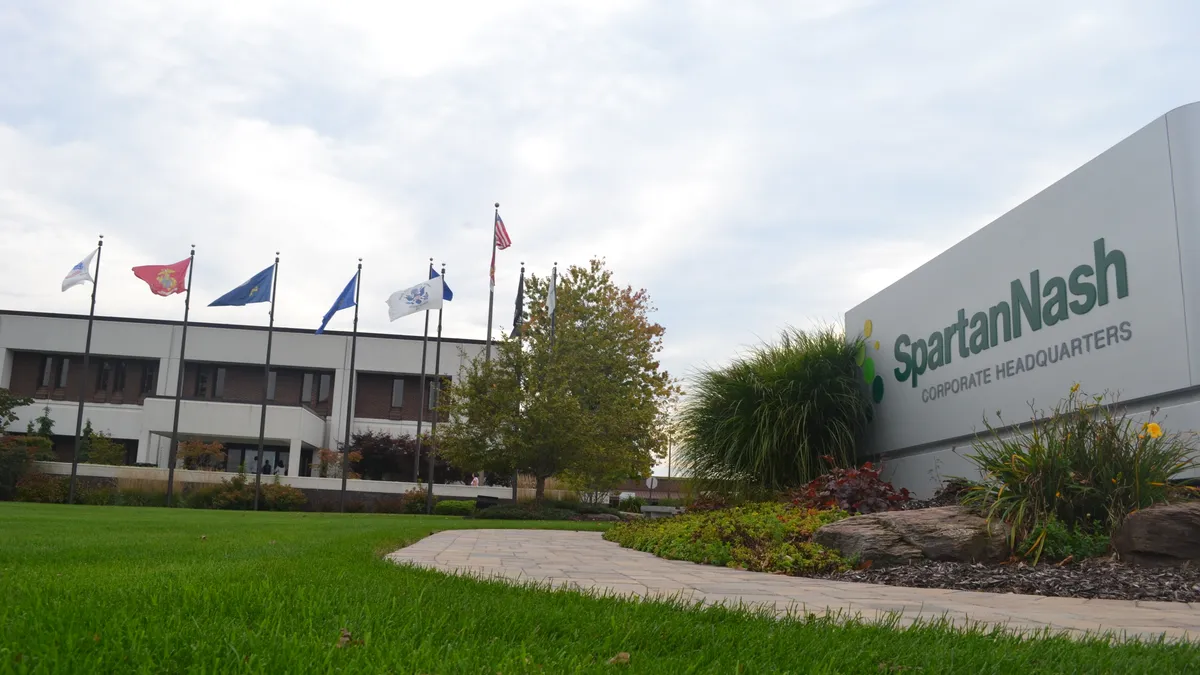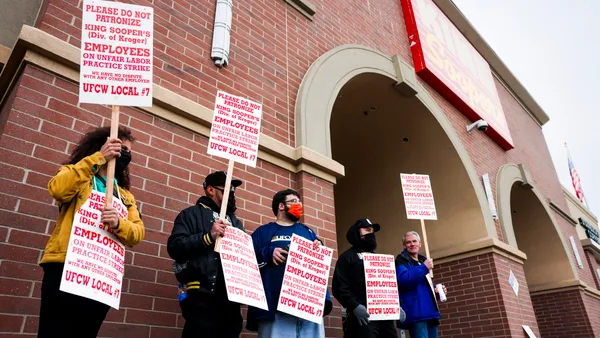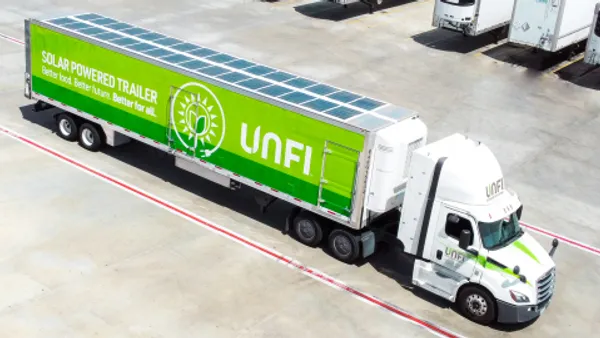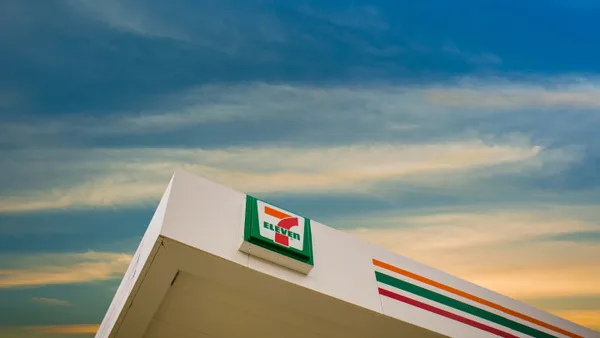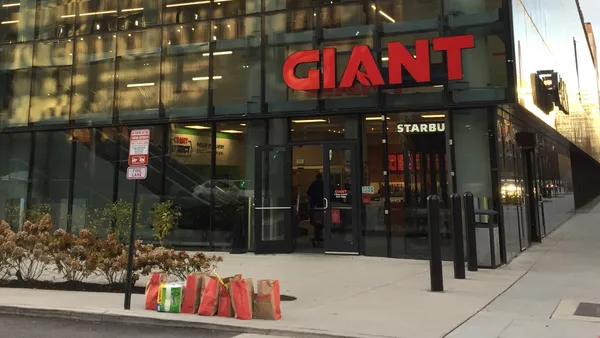Dive Brief:
- SpartanNash Company reported a consolidated net sales increase of 2.1% for the second quarter, to $1.90 billion from $1.86 billion a year ago, according to a company release. The increase in net sales was driven by continued sales growth in the food distribution and military segments of 4.3% and 3.9%, which were partially offset by a drop in retail sales.
- The food distributor and grocery store retailer reported earnings of $.50 per diluted share, compared to $21.1 million, or $0.56 per diluted share, in the prior year. The company attributes this decrease to a voluntary product recall of Caito Foods' fresh-cut produce.
- SpartanNash's retail stores, which include about 140 locations under the Family Fare Supermarkets, D&W Fresh Market, VG's Grocery, Dan's Supermarket and Family Fresh Market banners, continue to struggle in competitive markets. The company posted a decline in store sales of 3.6% to $464.6 million, and a 1.9% decrease in same-store sales.
Dive Insight:
Despite a voluntary recall that drove an estimated $2.9 million in losses, SpartanNash had some bright spots in its Q2 earnings — namely its distribution business, which grew 4.3% to $941.7 million in the quarter.
Sales growth from both new and existing customer programs fueled the increase for the food distribution unit, which gives the company a reason for optimism even as its retail business continues to struggle. CEO David Staples said the company’s distribution channel will be a priority moving forward, and he believes SpartanNash has an advantage as these businesses continue to consolidate.
“We bring scale and ability to purchase through our highly efficient network and then, by being involved in the retail world, we bring execution efficiency and partnering capabilities as a CPG world that (customers) value. When we put those two things together, we're able to bring … strong pricing and the ability to execute their strategy to serve their niche,” Staples said during the earnings call.
Despite the Caito Foods recall, wholesale continues to be a priority, too. Staples said the company will continue to develop products that meet the needs of “existing and future customers” who want healthier and fresher food offerings.
“While the recall has delayed our progress ... we continue to see great opportunity with our fresh offering,” he said. “Strategically, it's right down the fairway what the world wants today between healthier food and fresher food."
In the retail segment, SpartanNash’s sales have shown sequential improvement and, despite the 3.6% drop in net retail sales, Staples is optimistic that the company is headed in the right direction. He echoed a sentiment felt throughout the industry that pricing continues to be a challenge, as discount grocers like Aldi and Lidl continue to intensify the price wars.
Competitor Supervalu also struggled with its retail business, which may have been one of the reasons that led to its acquisition by United Natural Foods Inc. in July. According to CNBC, SpartanNash could be one of the next players in the merger or acquisition game.
To alleviate lagging sales, SpartanNash has accelerated Fast Lane online ordering and pickup service. Online ordering for delivery and curbside pickups are now available at approximately 55% of SpartanNash’s retail locations. Staples said 50% of the business from these channels is incremental.
“Our existing customers, we're seeing that they are purchasing 20% to 30% more than they originally were. What we really like to see is with the new and the existing customers, they're still shopping probably around 25% of the time,” Staples said. “So, we're not losing out of the store, which I think speaks to the convenience of our location and our operation. And I think click-and-collect, there is a real avenue there for profitability over the longer-term as we continue to refine our processes.”


